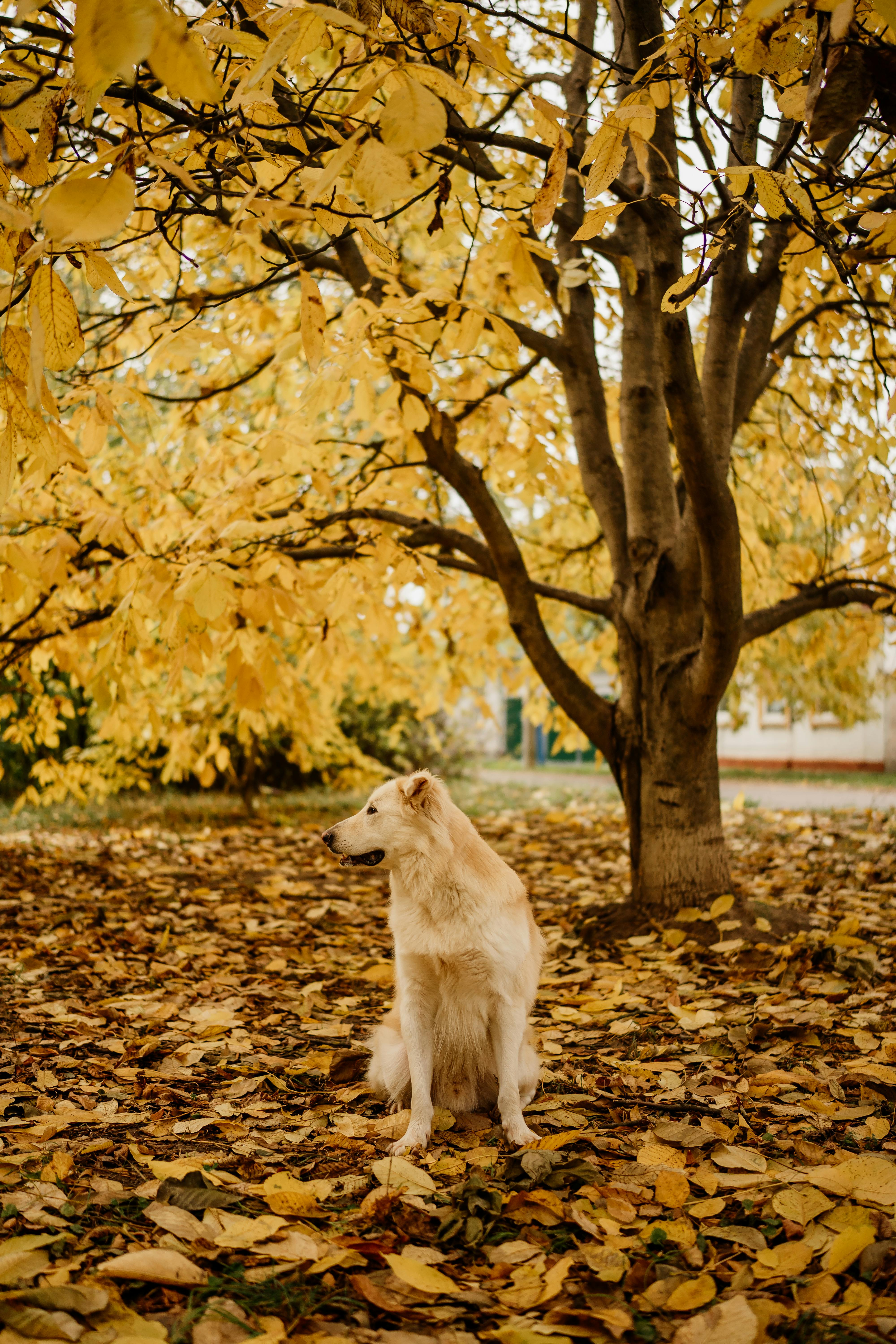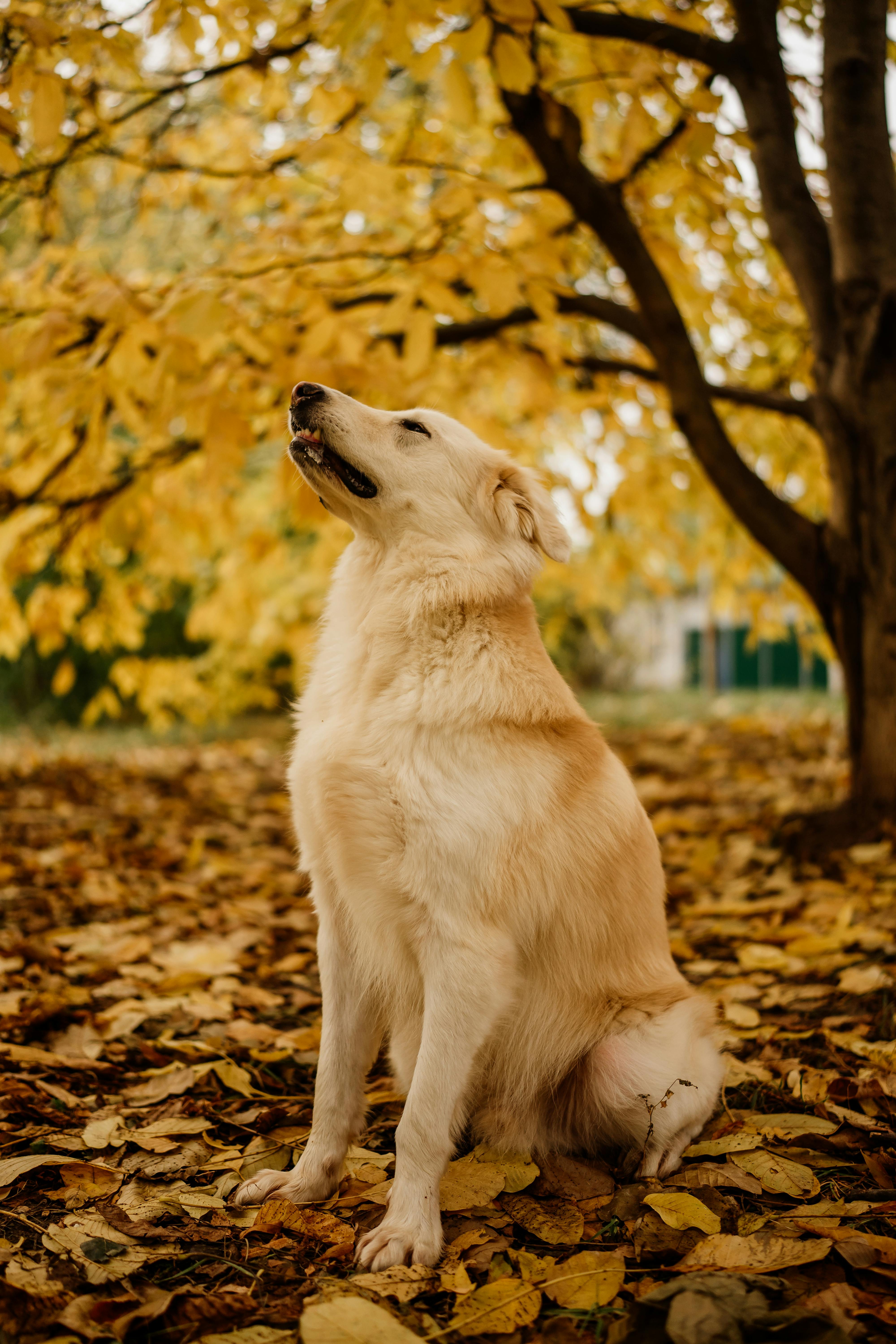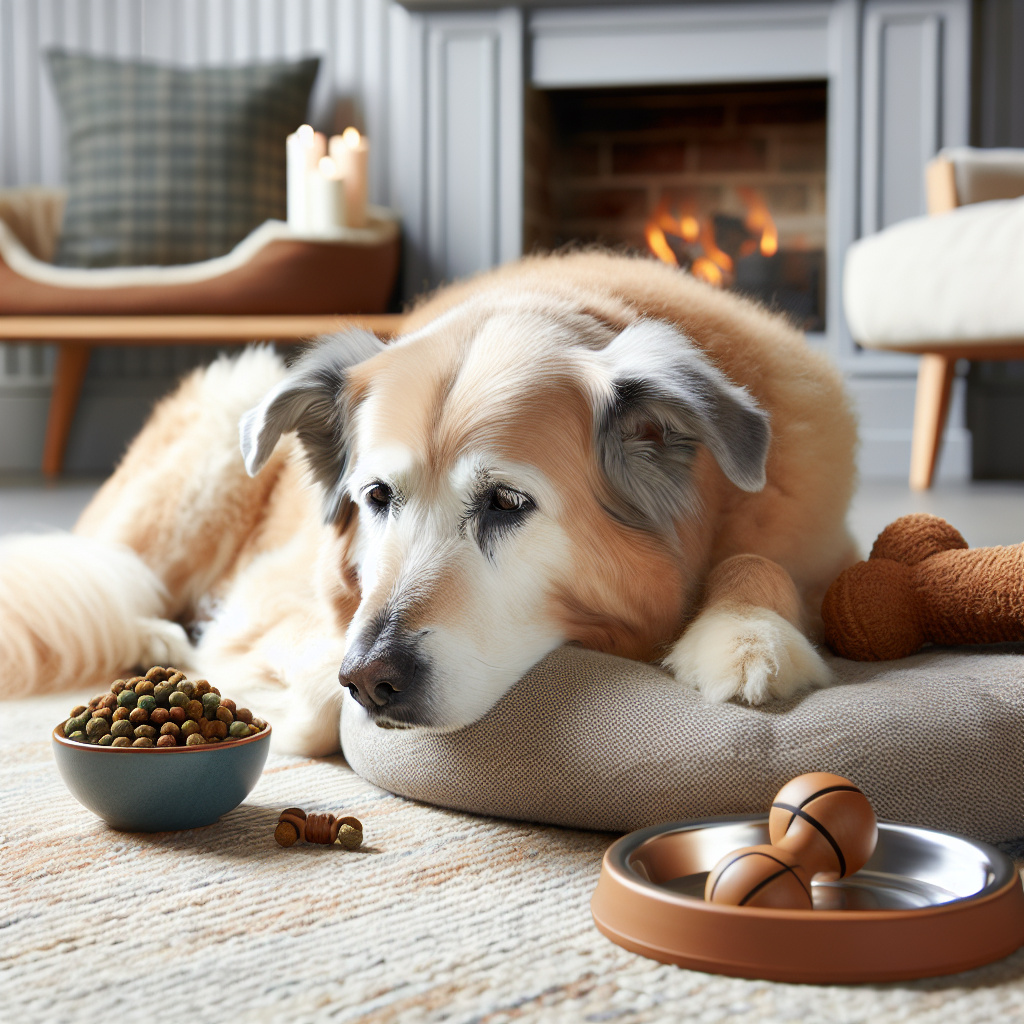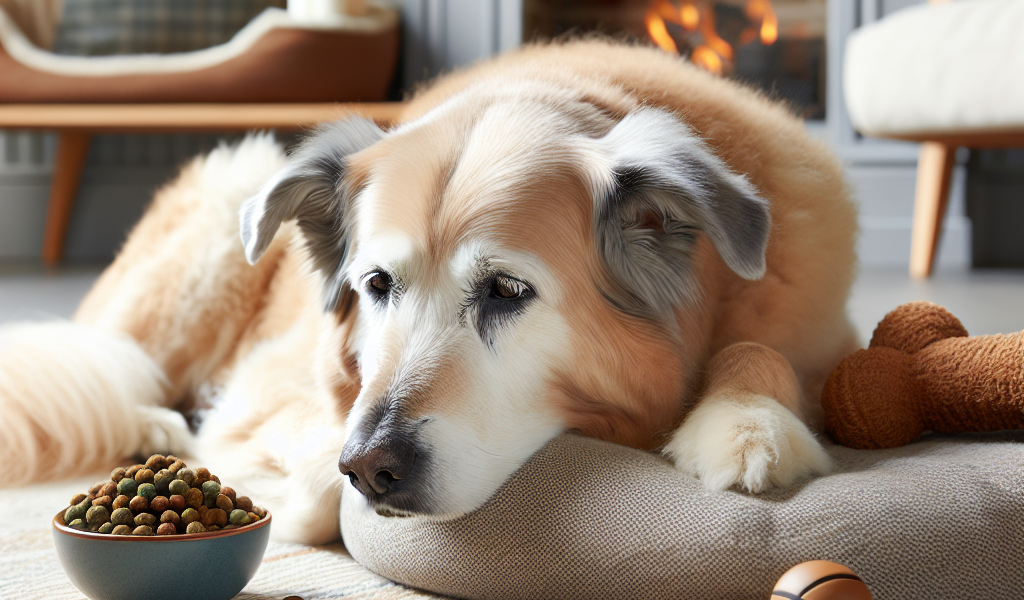Understanding and Addressing Weight Loss in Older Dogs
You may have noticed that your older dog is losing weight at a rapid pace, a problem that can lead to various health issues if not managed prudently. In the coming article aptly entitled “Understanding and Addressing Weight Loss in Older Dogs”, you will navigate through the details of this complex problem. It’s never easy to see your beloved pet losing weight rapidly, but with this comprehensive guide, you will obtain valuable insights about quick weight loss in older dogs and the best ways to address the situation.

Understanding the Basic Concept of Weight Loss in Older Dogs
As dogs age, they become more susceptible to various health problems, one of which is weight loss. Understanding this phenomenon can help you provide a more comfortable and healthier life for your senior dog.
What is considered rapid weight loss in older dogs
A dog is considered to have rapid weight loss if it loses more than 10% of its body weight in a short period of time, typically over a month or two. This kind of weight loss is often a sign of a serious underlying health condition that requires immediate veterinary attention.
Healthy vs unhealthy weight loss in dogs
Healthy weight loss in older dogs often comes about as a result of a balanced diet and regular exercise. It is gradual and controlled, happening over a period of time. Unhealthy weight loss, on the other hand, is abrupt and significant. It’s often accompanied by other symptoms such as loss of appetite, increased thirst, lethargy, or changes in behavior.
The impacts of aging on dogs’ weight
As dogs age, their metabolism slows down, and they may become less active, leading to weight gain. On the other hand, some older dogs lose muscle mass and bodyweight due to health issues related to aging. Such drastic changes should not be taken lightly and should be addressed appropriately.
Recognizing the Signs of Weight Loss in Dogs
Being able to recognize signs of weight loss in your dog can be instrumental in ensuring they get the necessary help and treatment on time.
Visible loss of muscle mass
One of the initial signs of weight loss in dogs is a visible reduction in muscle mass. You might notice that your dog’s body seems smaller and their bones more noticeable.
Increase in appetite yet losing weight
Some health conditions may cause your dog to eat more yet still lose weight. If you notice any drastic change in your dog’s appetite accompanied by weight loss, seek veterinary assistance immediately.
Changes in body condition score
The body condition score is a visual and palpable assessment of a dog’s weight relative to its size. Any changes to this score could be a sign of weight loss.
Prominent spine and ribcage
An obvious sign of weight loss in dogs is if you can clearly see or feel their spine or ribcage. This is often an indication that the dog has lost a substantial amount of body fat and muscle tissue.
Common Health Issues Leading to Weight Loss in Older Dogs
A variety of health issues can cause weight loss in older dogs. Recognizing these conditions can prompt early intervention and treatment.
Dental problems impacting eating habits
Dental problems can lead to difficulty eating, resulting in weight loss. Dogs with dental problems may refuse to eat or eat less than usual due to the pain associated with chewing.
Metabolic diseases like diabetes
Metabolic diseases, such as diabetes, can cause drastic weight loss. Dogs with diabetes will often exhibit increased thirst and urination alongside a significant decrease in weight.
Kidney or liver disease
A dog with kidney or liver disease may experience weight loss due to a decreased appetite or trouble absorbing nutrients from food.
Cancer and its effect on dogs’ weight
Cancer often causes loss of appetite and hence weight loss. It can also make dogs feel unwell and less likely to eat. Certain types of cancer can disrupt the normal metabolism, leading to significant weight loss.
Possible Behavioral Causes for Weight Loss
Aside from medical issues, a variety of behavioral factors can also contribute to weight loss in dogs.
Stress-related weight loss
Dogs can lose weight when they’re stressed or anxious. This could be due to many factors: a change in their routine, a recent move, or the arrival of a new pet or baby in the house.
Loss of appetite due to changes in environment
Dogs are sensitive creatures, and changes in their surroundings can impact their appetite, leading to weight loss. It’s crucial to introduce any changes gradually to minimize the impact on your dog’s health.
Effects of new medications or treatments
Certain medications or treatments can have side effects that cause weight loss. If your dog has started a new medication and you notice weight loss, it’s worth discussing this with your vet.

The Role of Nutrition in Maintaining a Healthy Weight
Nutrition plays a vital role in maintaining a healthy weight for your dog, especially as they age.
Potential dietary deficiencies causing weight loss
Inadequate intake of essential nutrients or malabsorption can lead to weight loss. Ensuring your dog receives a balanced diet is key to preventing weight loss.
The importance of balanced nutrition for older dogs
As dogs age, their nutritional requirements change. They require a balanced diet rich in proteins, vitamins, and minerals to maintain their health and prevent weight loss.
Choosing the right food for older dogs
Older dogs need food that is easy to digest and rich in quality proteins and fats. Your vet can help you find the right diet to help manage your older dog’s weight and overall health.
Exercise and Physical Activity’s Impact on Older Dogs’ Weight
Exercise continues to be essential for older dogs, though their level of physical activity may need to be adjusted with age.
Adjusting exercise routines as dogs age
As your dog ages, their exercise routine will have to adjust. They may not be able to go on long hikes or play the same intense games of fetch as before, but they still need regular, gentle exercise.
The relation between physical activity and weight
Physical activity helps maintain a healthy weight by burning calories and building muscle mass. Even light, regular exercise can make a difference in preventing weight loss in older dogs.
Safe exercises for older dogs
Examples of safe exercises for older dogs include short, leisurely walks, gentle playtime, and swimming (if your dog is comfortable with water). Always make sure your dog isn’t overexerting themselves.

Clinical Diagnosis of Weight Loss in Dogs
If you suspect weight loss in your dog, it’s vital to seek a professional diagnosis.
What to expect during a veterinary exam
During a veterinary exam, your vet will take a complete medical history and perform a thorough physical examination, including weighing your dog.
Blood tests and other diagnostic tools
Your vet might also recommend a blood test, urine test, and/or stool sample to help diagnose the cause of the weight loss. In some cases, more specific tests like x-rays or ultrasounds may be necessary.
Using the information from clinical tests to understand weight loss
The results from these tests can help your vet understand what is causing the weight loss so they can plan an effective treatment strategy.
Management and Prevention of Weight Loss in Older Dogs
Regular preventive measures are effective in managing and preventing weight loss in older dogs.
Regular weight checks and monitoring
Regular weight checks can help you catch early signs of weight loss before they become severe. Indicators can include a decrease in muscle mass or a more visible ribcage and spine.
Implementing dietary changes
If your dog is losing weight, it might be necessary to adjust their diet. A vet can help you choose a diet that caters to your dog’s specific needs.
Preventive health care for older dogs
Regular vet check-ups can help detect any potential health issues early and prevent weight loss. Your vet can provide tips for proper nutrition and exercise for your older dog.

Treatment Options for Addressing Weight Loss
Several treatment options can address the causes of weight loss in dogs.
Medication to treat underlying illnesses
If your dog’s weight loss is linked to a specific illness, medication may be necessary. For instance, dogs with diabetes or thyroid conditions can be treated with medication.
Use of dietary supplements or specialised foods
Specialised foods can aid in weight gain, and dietary supplements can ensure your dog is getting all the necessary nutrients.
Hospitalization for severe cases
In severe cases, hospitalization may be necessary for cats who are severely dehydrated or have lost a significant amount of weight. Make sure to consult your vet immediately if you find your dog in such a state.
Coping with an Older Dog’s Weight Loss
Watching your dog lose weight can be hard, but there are ways to offer comfort and support.
Emotional support for a dog losing weight
Your dog needs your love and support during this time. Comforting them through physical touch, reassuring words, and spending quality time can help them feel better.
How to provide comfort care for your dog
Comfort care might require adjusting your dog’s diet or living arrangements. Providing soft bedding, maintaining a comfortable temperature, and offering favorite toys can help provide a sense of security and comfort.
The importance of remaining patient and optimistic
Finally, remain patient and optimistic. Dealing with weight loss can be a long process, and your dog will need consistent support and encouragement. Remember to take care of yourself during this time, as well.


Pingback: Understanding Rapid Weight Loss Concerns In Dogs
Pingback: Balancing Exercise, Nutrition, And Mindset: Key Factors To Sustainable Weight Loss